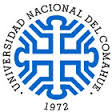- RDI Home
- →
- Facultad de Turismo
- →
- Artículos
- →
- View Item
JavaScript is disabled for your browser. Some features of this site may not work without it.
| dc.creator | Rosati, Facundo | |
| dc.date | 2020 | |
| dc.date.accessioned | 2020-04-15T15:50:05Z | |
| dc.date.available | 2020-04-15T15:50:05Z | |
| dc.identifier | http://rdi.uncoma.edu.ar/handle/uncomaid/15689 | |
| dc.description.abstract | Teniendo en cuenta que existe evidencia que justifica la importancia de la “novedad” como parte del proceso de aprendizaje, (Ballarini, Pérez, Moncada, Martínez, Viola; 2013) y, a su vez, entendiendo que las visitas guiadas tienen un componente educativo significativo, resulta esencial comprender como funcionan estos mecanismos y buscar estrategias para ponerlos en práctica durante las experiencias interpretativas. En las situaciones novedosas, cuando aparece algo fuera de lo que tenemos previsto, nos encontremos más alertas y más predispuestos a aprender acerca de lo que está sucediendo. Por tanto la sorpresa, como técnica interpretativa, cobra especial importancia cuando se pretende que el visitante viva una experiencia que, más allá de los aspectos lúdicos y recreativos, genere cambios significativos en su comportamiento a través del aprendizaje. Sin embargo, en el campo del turismo la neurociencia tiene aún una aplicación muy escueta, limitándose a las áreas del marketing y las ventas. | es_ES |
| dc.description.abstract | Considering that there is evidence that justifies the importance of ‘’novelty’’ as part of the learning process, (Ballarini, Pérez, Moncada, Martínez, Viola; 2013) and in turn understanding that guided tours have a significan educational component it is essential to understand how these mechanism work and look for strategies to implement them during interpretive experiences. In novel situations when something appears outside of what we have planned, we are more alert and more willing to learn about what is happening. Therefore, surprise as an interpretive technique becomes specially important when the visitor is expected t olive an experience that beyond the recreational and recreational aspectsgenerates significant changes in their behavior through learning. However, in the tourism area, neuroscience still has a very brief application limited to the areas of marketing and sales. | |
| dc.format | application/pdf | es_ES |
| dc.format.extent | pp. 34-41 | es_ES |
| dc.language | spa | es_ES |
| dc.publisher | Universidad Nacional del Comahue. Facultad de Turismo. | es_ES |
| dc.relation.uri | http://revele.uncoma.edu.ar/index.php/merope/article/view/2598 | es_ES |
| dc.rights | Atribución-NoComercial-CompartirIgual 2.5 Argentina | es_ES |
| dc.rights.uri | https://creativecommons.org/licenses/by-nc-sa/2.5/ar/ | es_ES |
| dc.source | Merope. Revista del Centro de Estudios en Turismo, Recreación e Interpretación del Patrimonio. Núm. 1 (1) (2020) | es_ES |
| dc.subject | Neurociencia | es_ES |
| dc.subject | Turismo | es_ES |
| dc.subject | Interpretación del patrimonio | es_ES |
| dc.subject | Efecto gardel | es_ES |
| dc.subject | Neuroscience | |
| dc.subject | Tourism | |
| dc.subject | Heritage interpretation | |
| dc.subject | Gardel effect | |
| dc.subject.other | Ciencias de la Administración y Economía | es_ES |
| dc.subject.other | Ciencias de la Educación | es_ES |
| dc.subject.other | Ciencias Biomédicas | es_ES |
| dc.title | ¡Sorpresa! Un aporte de la neurociencia para el mejoramiento del aprendizaje en la actividad interpretativa. | es_ES |
| dc.type | Articulo | es |
| dc.type | article | eu |
| dc.type | acceptedVersion | eu |
| dc.description.fil | Fil: Rosati, Facundo. Universidad Nacional del Comahue. Facultad de Turismo; Argentina. | es_ES |
| dc.cole | Artículos | es_ES |
Files in this item
| Files | Size | Format | View |
|---|---|---|---|
|
There are no files associated with this item / / view Origin of Document. |
|||


